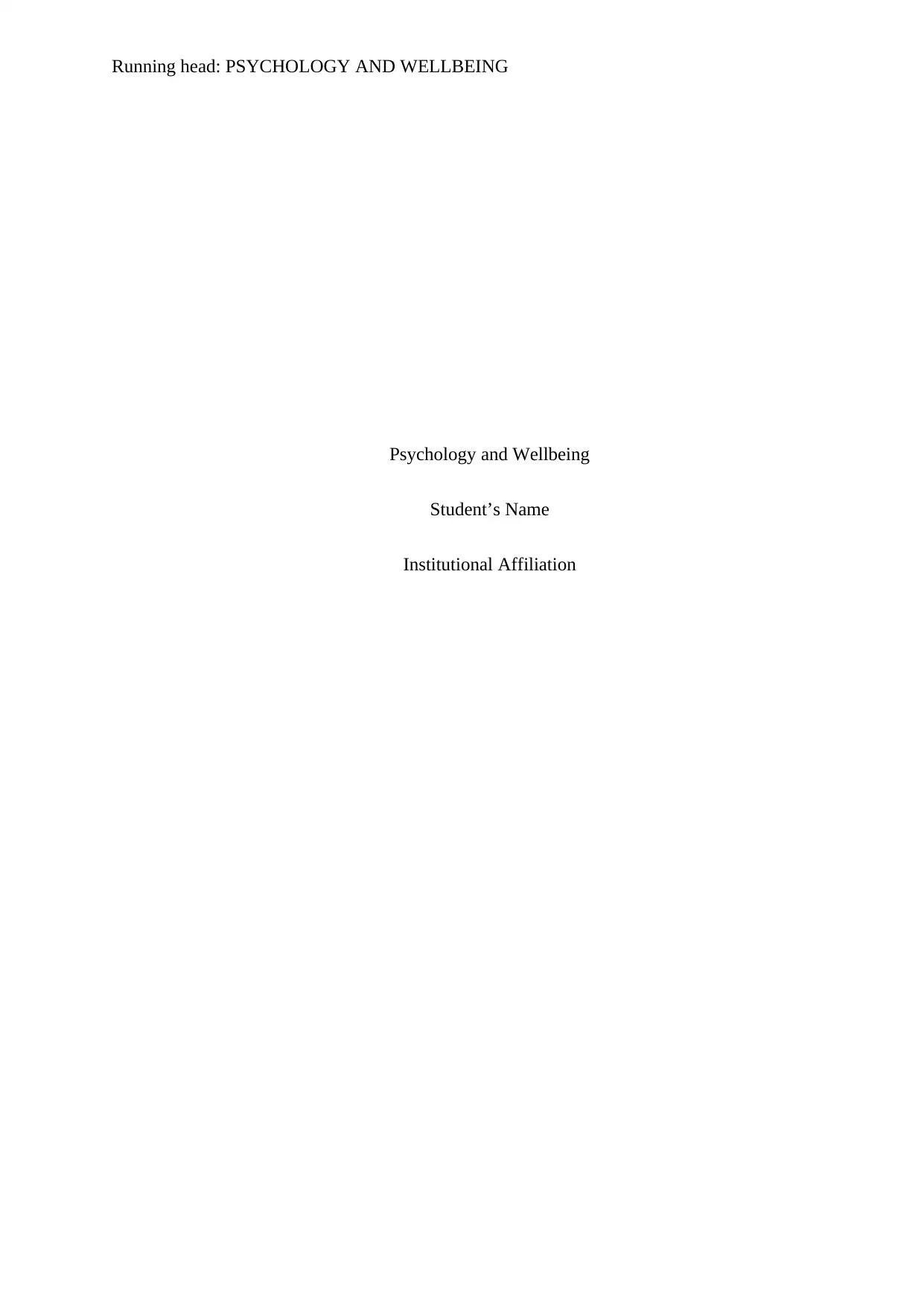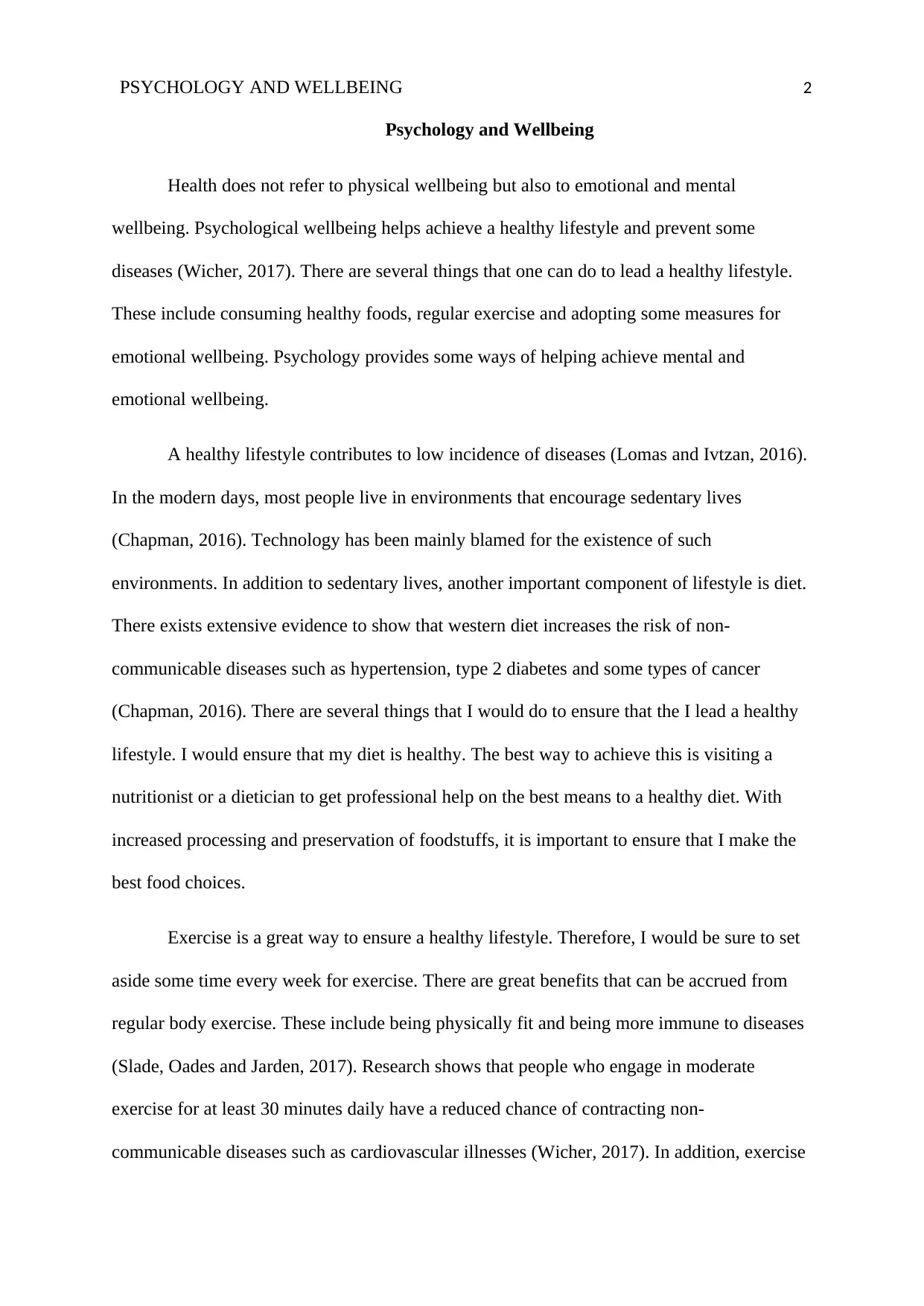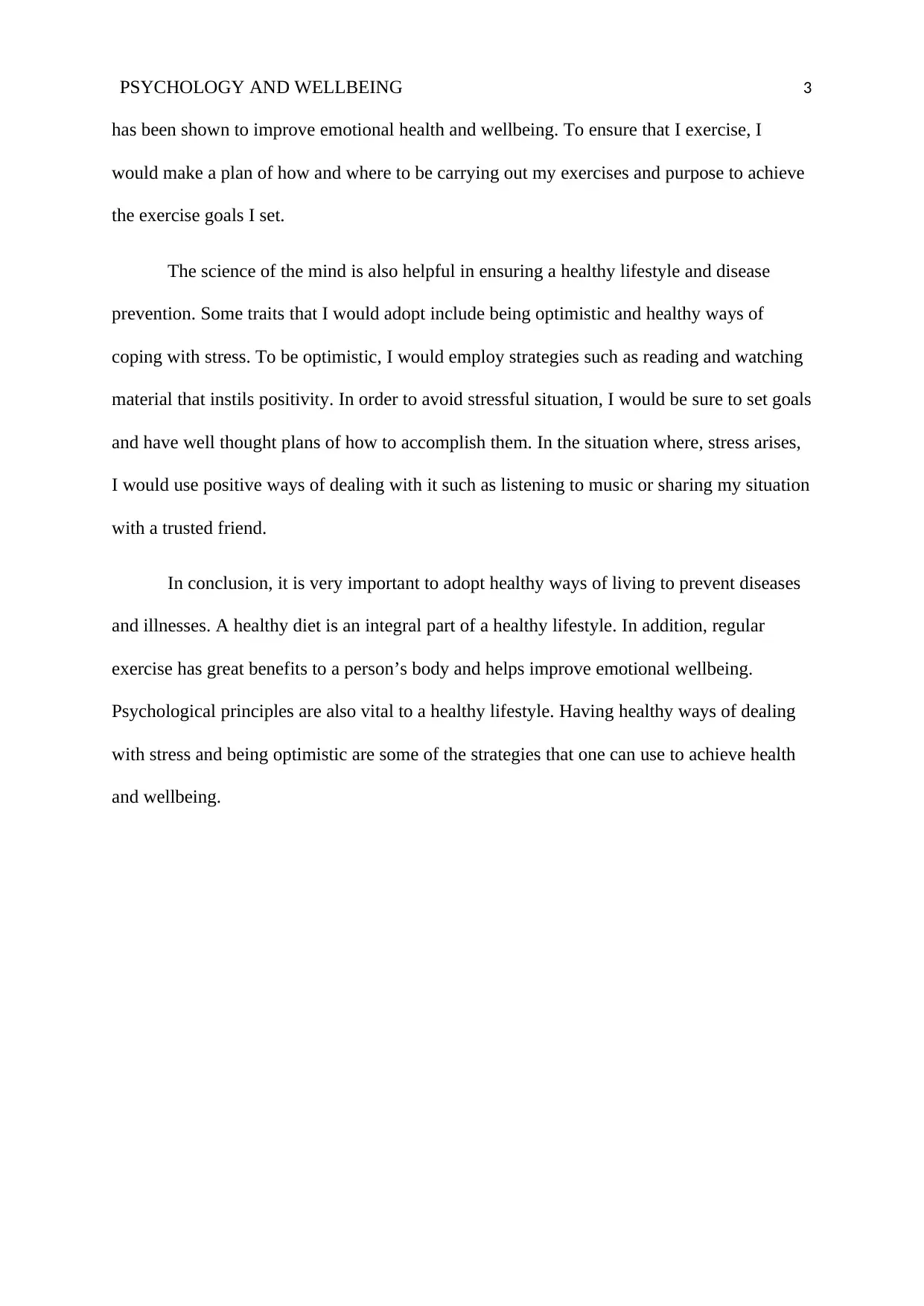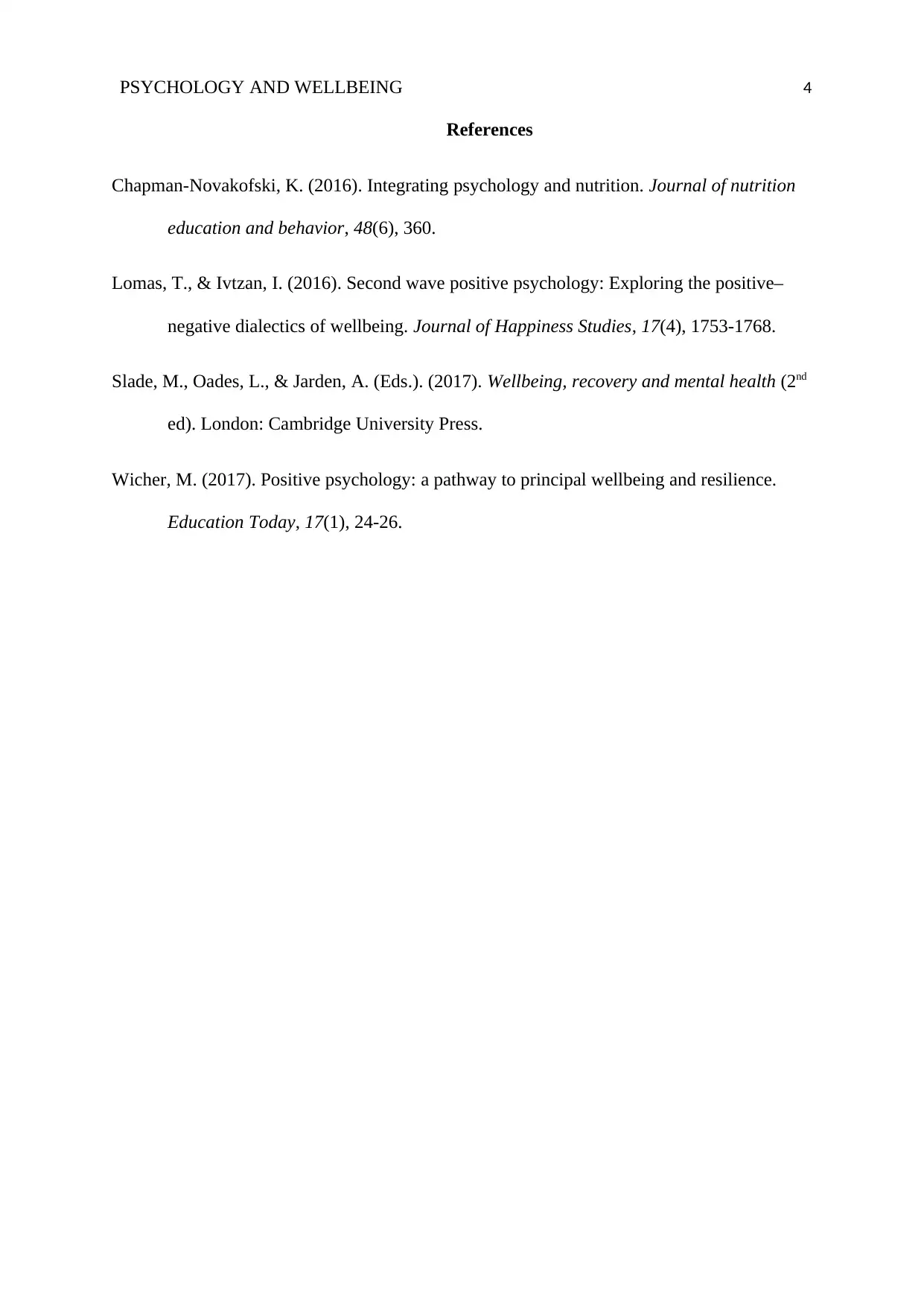Psychology and Wellbeing: Strategies for a Healthy Lifestyle
VerifiedAdded on 2022/11/13
|4
|729
|234
Essay
AI Summary
This essay delves into the crucial relationship between psychology and wellbeing, emphasizing that health encompasses not only physical but also emotional and mental states. It highlights the significance of adopting a healthy lifestyle to prevent diseases, discussing the role of diet, exercise, and psychological strategies. The essay explores how a balanced diet, incorporating professional guidance, and regular exercise, can contribute to a healthy lifestyle. It further emphasizes the importance of adopting psychological traits like optimism and effective stress management techniques, such as positive coping mechanisms and goal setting. The author concludes that integrating these elements is vital for achieving overall health and wellbeing, supported by references to relevant research in the field.
1 out of 4










![[object Object]](/_next/static/media/star-bottom.7253800d.svg)